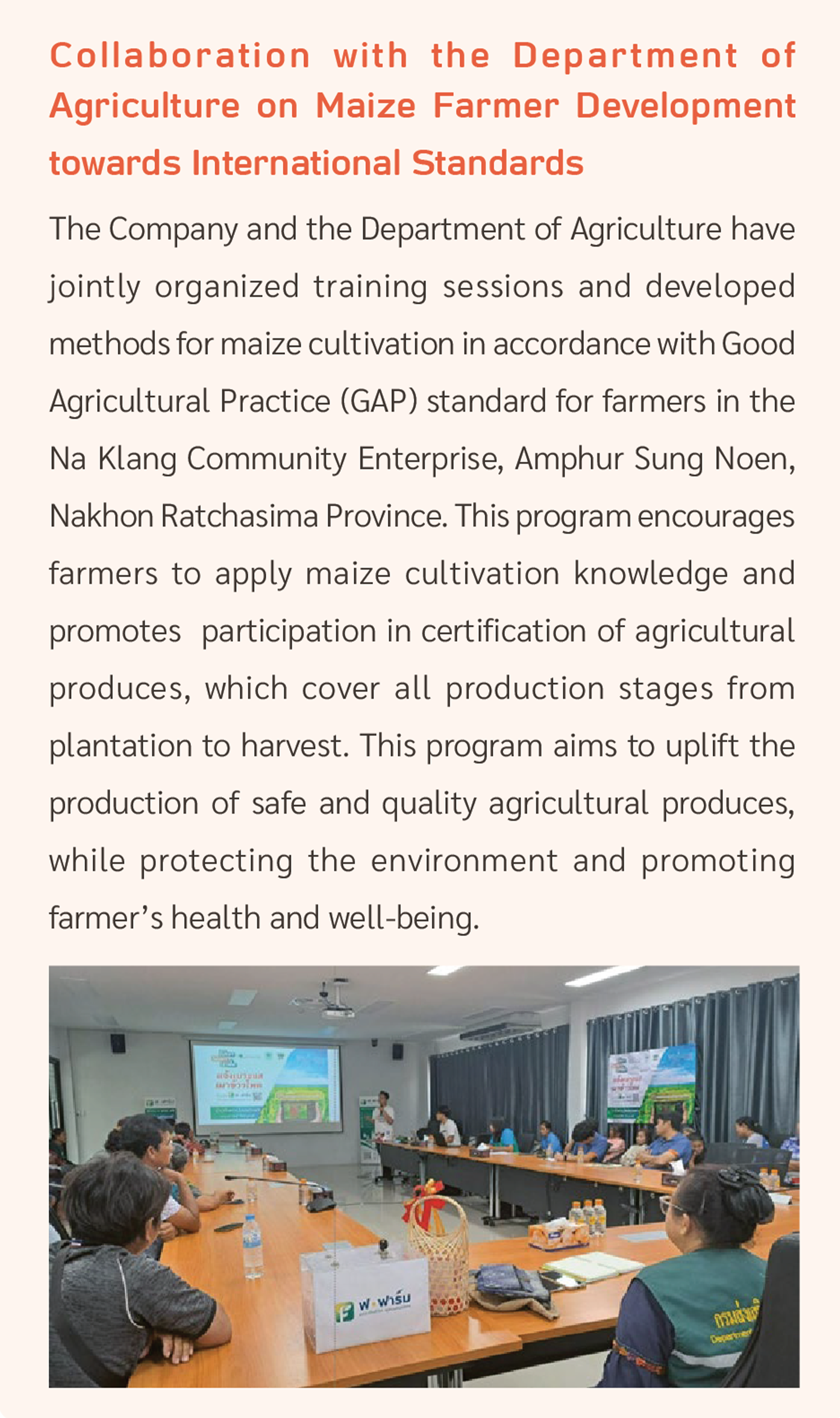The Company collaborates with partners throughout the supplychain, including government agencies, the private sector, andfarmers. These efforts include protecting natural resources and the environment, sharing knowledge, and enhancing the production efficiency of farmers in our supply chain as follows:
Elevating Thailand's Agricultural Supply Chain toward a Sustainable Food Production System
Collaborating with ERM-Siam Co., Ltd. (a global sustainability consulting firm), the Company organized a workshop with participants including representatives from the farming community (such as members of the Roundtable on Sustainable Palm Oil (RSPO)), industry representatives, government agencies, academic institutions, independent auditors, and both domestic and international civil society. The aim was the sharing of perspectives and hearing feedback on sustainable sourcing standards for agricultural raw materials developed by the Company in accordance with the ISEAL Alliance's Code of Good Practice.

This workshop served to validate the robustness of sourcing standards for key ingredients in the animal feed industry-namely,animal feed corn, soybean meal, palm oil, and cassava, which requires third-party assurance for transparency. Input was gathered from all stakeholder groups, ensuring the standards encompass social and environmental responsibility e.g. deforestation-free and stubble burning-free sourcing, good labor practices and human rights, and full traceability throughout the supply chain. This initiative will further prepare the Company to adapt to changes in international trade regulations, including CBAM (Carbon Border Adjustment Mechanism), EUDR (EU Deforestation Regulation), and CSDDD (Corporate Sustainability Due Diligence Directive), requiring comprehensive supply chain due diligence regarding human rights and environmental impact.
Elevating Thailand's Agricultural Supply Chain toward a Sustainable Food Production System
Impacts of animal feed corn cultivation include air pollution from stubble burning, soil degradation, and the use of fertilizers and agricultural chemicals. As such, CPF collaborated with the Department of Agriculture to provide training and improve animal feed corn cultivation practices with Good Agricultural Practice (GAP) standards for farmers in the Na Klang community enterprise in Sung Noen District, Nakhon Ratchasima Province, Thailand. The aim was to equip farmers with knowledge to improve their cultivation methods and guide them through the certification process at every stage from field management to post-harvest management.

Performance





